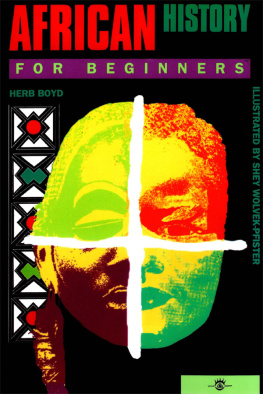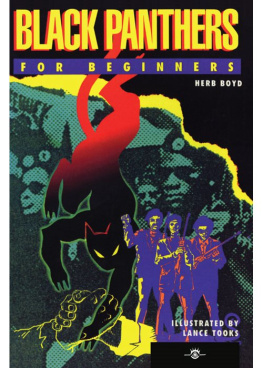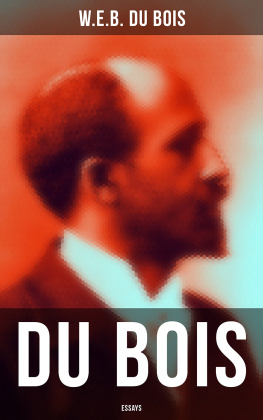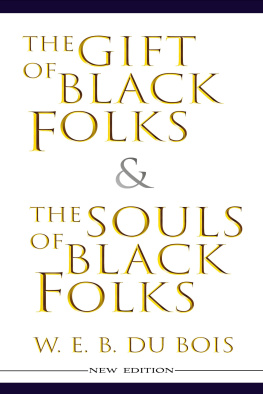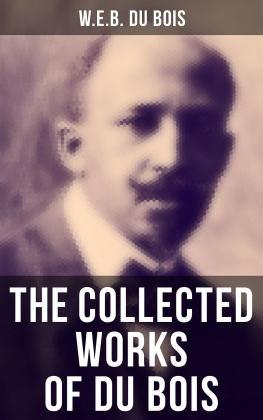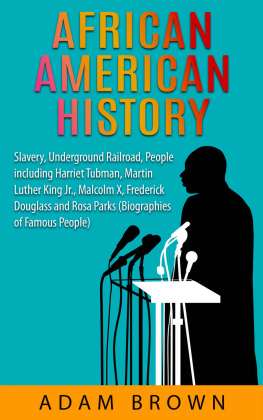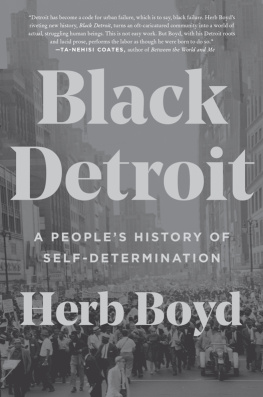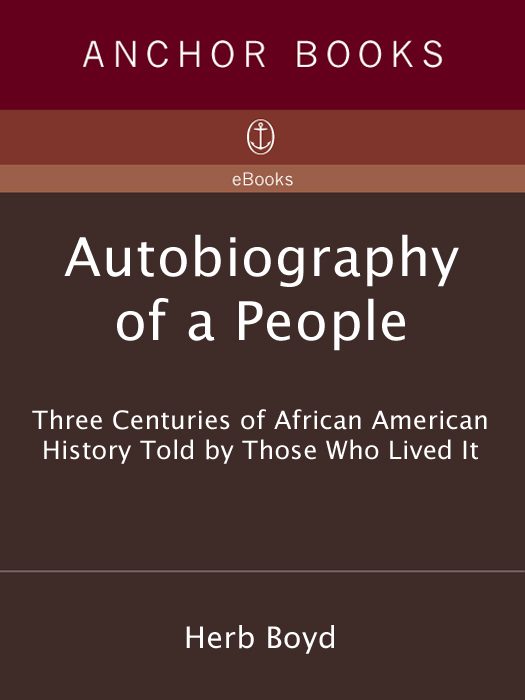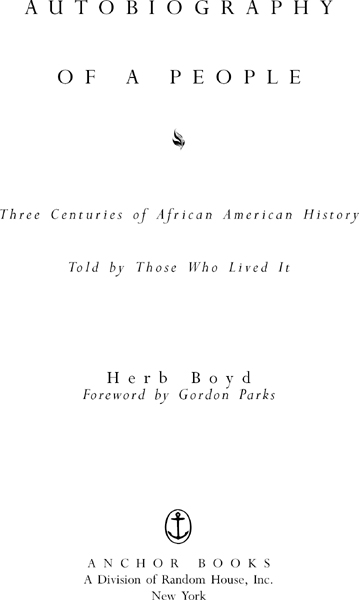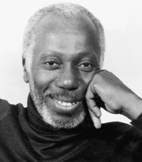
Herb Boyd
AUTOBIOGRAPHY OF A PEOPLE
Herb Boyd is the coeditor with Robert Allen of Brotherman: The Odyssey of Black Men in America and the author of Down the Glory Road and Black Panthers for Beginners. An award-winning journalist, his articles have appeared in the Amsterdam News, Black Scholar, Code, Down Beat, Emerge, Metro Times (Detroit), and The Source. He is the national editor of The Black World Today, an on-line publication, and he teaches at the College of New Rochelle and New York University.
ALSO BY HERB BOYD
Black Panthers for Beginners
Brotherman: The Odyssey of Black Men in America (coeditor, with Robert Allen)
Down the Glory Road
To my mother.
And to Dr. John Henrik Clarke, Gordon Parks, and Dr. Charshee McIntyre,
whose lives taught me how to live.
ACKNOWLEDGMENTS
It is not possible to acknowledge all those who have helped in this project, but the first on the list, like charity, begins at home. For most of her life, my mother has been a hardworking domestic who sacrificed everything to raise her children. No matter how sick or tired, she rarely ever missed a day of work and was nearly always on time. Along with the lessons she gave us through books, there were the more important lessons of her lifeher commitment, her word, her determination to complete any task she started. My wife, Elza, possesses some of these same attributes, and so the discipline my mother instilled continues, as my companion makes sure assignments are kept, each project polished and refined.
Then comes a parade of thoughtful and productive associatesmy agent, Marie Brown, who has dutifully shepherded this book and others to contract and completion; to my editors, Stephanie Rosenfeld and Roger Scholl, who believed in this pursuit right from the start and have been unflagging in their devotion. Toward the end of the project when the dauntless task of gathering permissions loomed, Marci Bell was indispensable, tracking down hard-to-find authors and publishers. Also thanks to Allison Warner.
Early on, I benefited from a number of librarians, particularly Sharon Howard and the staff at the Schomburg Research Center in Harlem. Each query I presented was diligently pursued and without them many of the obscure titles would have never been found.
Several friends warrant praise for just being a part of my daily life, keeping me on point, and delivering the incidental bits and pieces of advice, information, and spiritual nourishment we all need to get by. Among these treasured partners are Don Rojas, Robert Van Lierop, Robert Allen, Malik Chaka, Playthell Benjamin, David Ritz, Ron Lockett, Ron Williams, Elinor Tatum, Tonya Bolden, Clarence Atkins, Quincy Troupe, Richard Davis, Charles Moore, Akiba Solomon, Bill Katz, Akinshiju Ola, Aziz Adetimirin, Chris Griffith, Kenny Meeks, Richard Muhammad, Hilly Saunders, Conrad Muhammad, Eugene Redmond, Steve Chennault, Cleophus Roseboro, J. P. Lutcher, Alton Maddox, and Louis DeSalle.
But after all is said and done, only I am responsible for whatever miscues make it to print, though I would gladly welcome any of my partners to help shoulder the blame.
CONTENTS
Part I .
Part II .
Part III .
Part IV .
Part V .
Part VI .
Part VII .
Part VIII .
Part IX .
Part X .
Part XI .
Part XII .
Part XIII .
Part XIV .
Part XV .
Part XVI .
Part XVII .
Part XVIII .
FOREWORD
For centuries the clock has moved on, and relentlessly the Black struggle against racism has moved with it. There have been times however when the ferocity of that struggle seemed to be fading. But history assures us that hope will keep turning up in our diaries. Neither hatred, bigotry, nor lynching trees have been able to halt its flowing. Inexhaustible, it is still running through time, refusing to be rubbed off the pages of African American history.
Autobiography of a People sends me wandering backward to a past that, at times, amounted to a Black man and womans prison. But it also acquaints me with an eloquent gathering of powerful voices that emerge as one to help the disadvantaged to keep their lives moving. Strangers to weeping, the authors here are involved with turning out our dreams. Having knocked on so many doors that refused to open, they realized what they had to do, then did it. Drawing from the deep wells of their own lives, they ensnare you then suck you into the shadows of their most disgruntled yearswhile asking for no more than the justice of equality. A talk with their dark past sheds light upon our future. And after questioning a good number of them I find their answers are uncompromising and a formidable truth to power. To rise is to suffer, and outdistancing those born with white skin is still a problem for Black survival. With a delicate blend of suspicion and hostility, we watch closely as history hands out its shrouds and medals with feeble uncertainty.
Of this corpus of authors and personalities, Herb Boyd admits to a dilemma of choice, and possibly to sins of omissions. But this broad arbitrary cloth he stitched together doesnt ask for apologies. It generously served its intentionto produce a powerful anthology of a beleaguered race as it struggles through three centuries of inequality. He explains that there is a clear rationale for each choice. But just about everybody who deserved to be there is there. Olaudah Equiano and Ukawsaw Gronniosaw introduce us to the African past. Linda Brent (Harriet Jacobs) takes us on a precipitous journey from slavery to freedom. Then along with many others, Maya Angelou and Richard Wright confront the shadowy miscellany of those who wish all Black faces ill. Beyond these and several who have died, others are still climbing those consequential hillsclimbing, climbing endlessly over those who conspire to hold them back.
In the full light of so many excruciating years, these voices should pull our tired bones even closer together. So close that it becomes a unified chorus, a seamless cry of hope and fulfillment from Equiano to Bernice King, from the dark African past to the bright African American future.
GORDON PARKS ,
New York, 1999
INTRODUCTION
My race needs no special defense, for the past history of them in this
country proves them to be equal of any people anywhere. All they
need is an equal chance in the battle of life.
Inscribed on a monument to Robert Smalls in Beaufort, South Carolina
T HERE IS PROBABLY NO BETTER TIME TO reflect on the past than at the dawn of a new millennium. On this propitious occasion we should remember the long and stony road we trod, the unwavering determination to surviveand to prevailno matter the pain or obstacles. The story of African American people is a glorious one, replete with a pantheon of mighty voices and courageous souls who in their combined strength have overcome inestimable odds and carved a special niche in the gallery of world culture.


